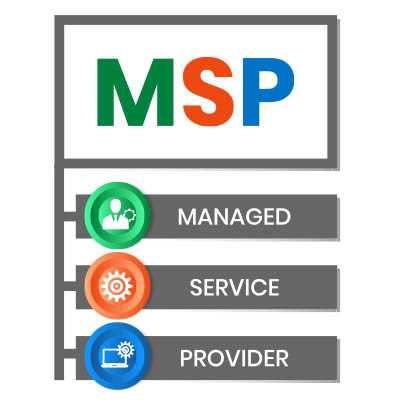If you think your business is immune to the dangers of cybersecurity attacks, think again. Cybercriminals don’t discriminate, and they’ll attack you just as readily as a larger enterprise simply due to your weaker network security. If you want to keep your business from suffering a cybersecurity attack needlessly, we’ve got just the thing for you.
Washington Works Blog
Most stories you consume will follow the format of introduction, rising action, conflict, falling action, and resolution. The tense parts of the story, the rising action and conflict, are what drive it forward, and they’re also what make things interesting along the way. That said, you can’t run your business like a story, and you can’t run your IT in this way either.
It’s easy to fall into the trap of thinking that IT is more of a cost than a savings mechanism. But in reality, IT is a powerful tool that can help your business eliminate unnecessary expenses, improve operations, and stop problems in their tracks before they even exist. This approach, proactive IT, has many benefits, all of which save you money.
You’ve locked down your network with cybersecurity—but what about the risks right outside your door? Physical security breaches are a serious threat to your employees, data, and critical equipment. For any small business owner, addressing this issue isn’t just good practice—it's a necessity for true peace of mind.
Let’s imagine that your business has a hidden back door—one that your building manager doesn’t even know exists—and that door leads straight into the heart of your office. By the time someone finds out that door exists, someone could have snuck in to wreak all kinds of havoc, unbeknownst to you. This is what is known as a zero-day threat; it’s a security vulnerability that is being actively exploited in the wild, one that was previously unknown to the vendor and unpatched against, and it’s a serious problem for any SMB.
Imagine that your screen flashes a devastating message: your critical data is encrypted, and you face a massive ransom demand. Your operation grinds to a halt. This isn't just an enterprise problem; it's the harsh reality for businesses of all sizes.
Cyber threats don't discriminate. Your small or mid-sized business is a prime target.
Open your Profit & Loss statement. I'm willing to bet that the IT line is sitting squarely in the expense column, right next to rent, electricity, and paper towels.
For many business owners, IT is seen as a necessary evil; a cost center, a black hole they just have to throw money into. When you see a technology bill, you get that double-take and cringe. Your primary goal is to minimize this cost; often to the point of avoidance.
You might have IT staff in the office, but that doesn’t mean that all of your problems are handled with the time, speed, and attention they deserve. Your people might be overworked and overwhelmed by the amount of work demanded of them, and having coverage at all times comes at a cost—a cost that your technicians (and your business) aren’t willing to pay. Outsourcing helps you make up for this deficit in a way that’s both kind to your team and helpful for your budget.
If your business’ technology seems to be a-okay, the thought of updating it may seem unnecessary. This is decidedly not the case. Updates are what keep your business functioning (and therefore, profitable), while every skipped update opens you up to vulnerabilities, bugs, and much more severe consequences when you experience a true threat.
Some surprises can be lots of fun. That said, any surprise impacts to your business’ IT won’t be.
Whether a server crashes, your wireless connectivity goes kaput, or you’re suddenly dealing with a security threat, the outcome is likely the same: the problem is fixed, but the invoice delivered to you a week or so later introduces a brand-new issue… the bill.
Nowadays, there is no reason for this little scenario to happen. Instead, your IT can be treated as a predictable utility cost without any dramatic surprises to throw off your plans.
There’s a lot that any small business owner has to manage at any given moment, so the last thing you need is to have technology issues or challenges throw a wrench into things… and when they do, you certainly don’t need any delays in fixing the problem.
That’s how traditional IT support works, and nowadays, it's simply insufficient for business needs. Fortunately, today’s technology also enables us to address these support needs more effectively. Let’s review how managed services offer a more proactive and strategic (and therefore more financially sound) option.
Let’s say you have all the knowledge, time, energy, resources, and expertise in technology management in the world. Would you want the responsibility of managing your company’s IT? Today, we’re exploring some of the more plausible reasons why managing your own technology solutions just doesn’t make sense—and how a managed service provider can help.
Businesses rely on a ton of technology for their operations and, as such, rely on support to help keep these tools working effectively. We would know! We proudly provide our neighbors with the technical assistance they need to succeed. As we’ve done so, we’ve noticed that there are some support needs we frequently attend to.
Let’s review some of them and why they are so vital for you to have assistance in managing, preferably, from us!
Imagine owning an elevator and only fixing it when it completely breaks down. Sounds ridiculous, right? Well, that’s basically what businesses do when they rely on a break/fix IT strategy.
Break/fix IT is exactly what it sounds like, you don’t call in the experts until something goes wrong. On the surface, it might seem like a way to save money, but in reality, it’s a recipe for stress, lost revenue, and major headaches. Let’s talk about why this approach just doesn’t make sense anymore.
With technology being such a crucial element of many businesses and their operations, it only stands to reason that it ultimately pays to invest in and maintain it. That said, many businesses lack the resources in one way or another to properly manage their IT independently.
In these cases, it pays to outsource some or all of your IT support, and for various reasons. Let’s go over three of the major benefits to be had.
Technology is so ingrained in business that it’s nigh-impossible to operate without it. For this reason, cyberattacks on businesses are even more devastating, as they can halt operations and expose important data. Today, we want to highlight five common problems you might encounter with your cybersecurity.




















